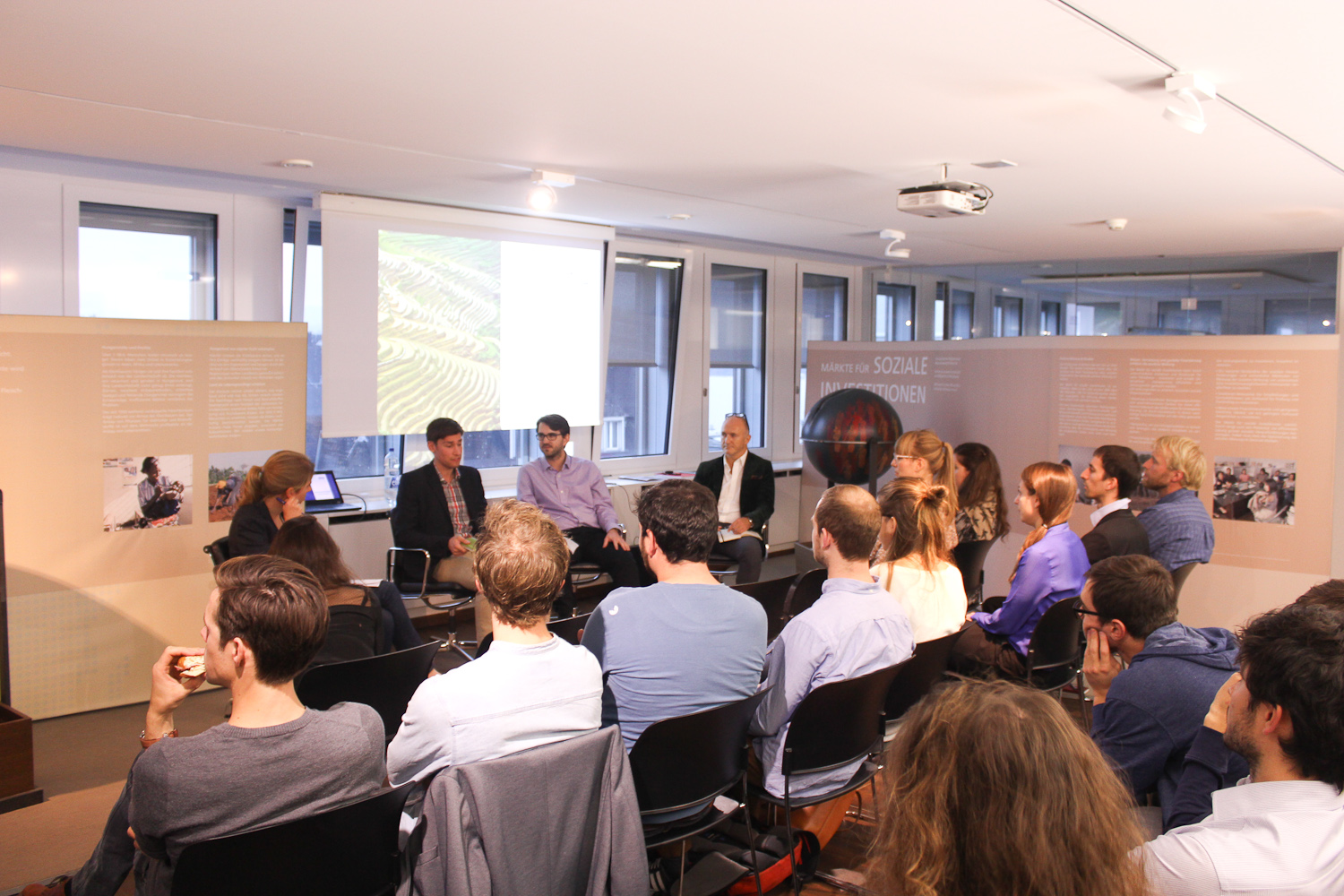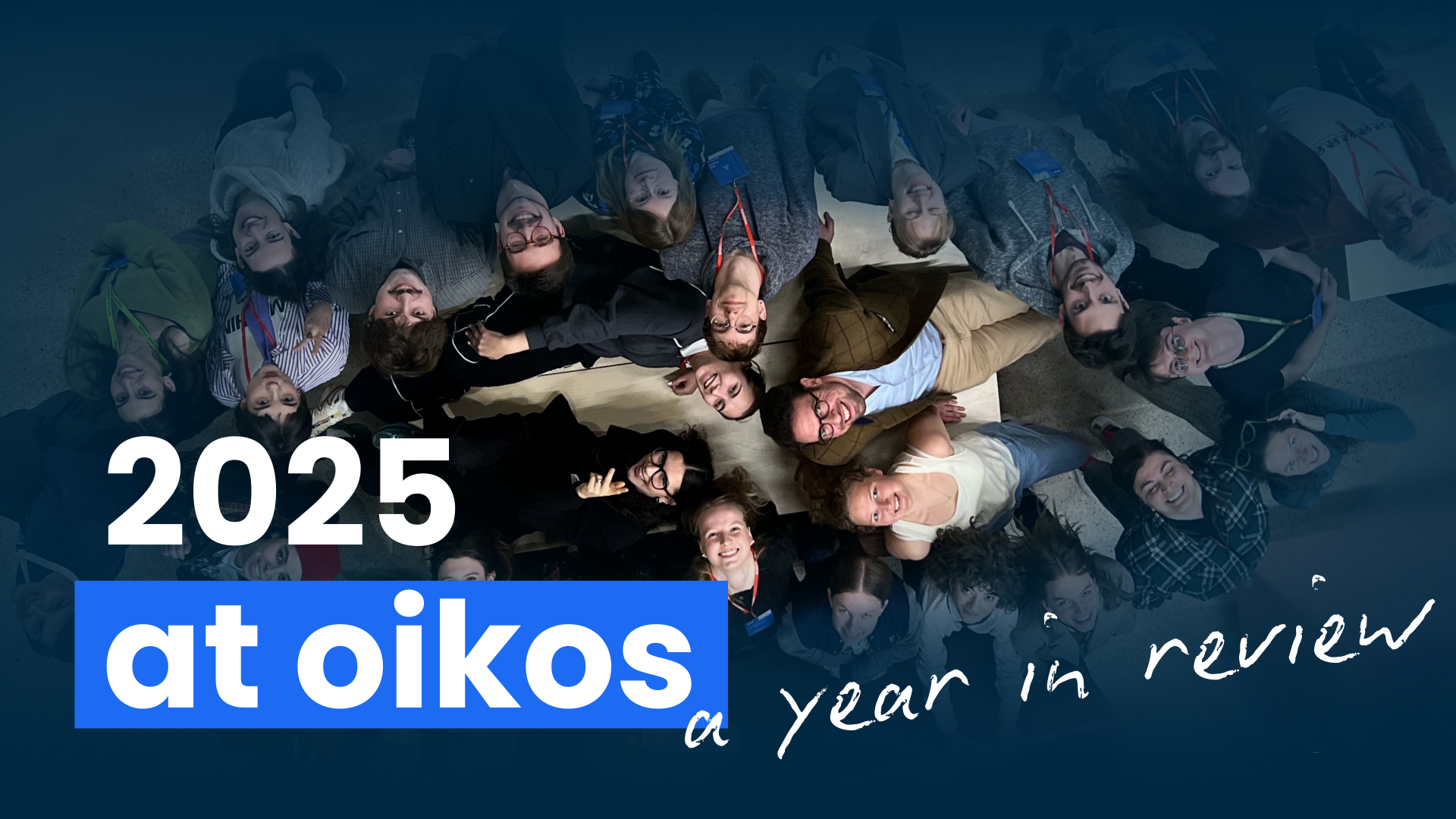
When you think of oikos, you think about everything sustainability. You think about our passions for multi-culturalism, being entrepreneurial, we love food and constantly staying open minded and debating our ideas. All these elements were present at our oikos Alumni Debates in Zurich on Monday 12 October.
The panel consisted of oikos alumni Christian Bartsch, who co-founded Essento, Benjamin Gräub from the FAO in Rome and Richard Kaegi from Globus Switzerland. The room hosted around 45 people and at its side was a long table full of tasty food. The menu? Insects from Essento, of course, and a catering by Äss bar who sell food that would otherwise have been wasted. The wine came from Delinat, the leading retailer for organically produced wine in Switzerland.
The debate started off with the introduction by Harriet Jackson, ex-oikos President. She was also one of the main organizers of the event. She mentioned she completed her Master’s thesis on the topic of food sustainability and was, therefore, excited to hear more from the panelists and the aware audience.
 The first panelist to speak was Benjamin from the FAO. Benjamin explained what kind of work the FAO is doing in order to ensure responsible and sustainable agriculture. He also expressed the different methodologies for being able to feed the world, use our lands effectively and ensure correct monitoring of our soils. Benjamin highlighted the importance of technologies in predicting the control of climate change in agriculture and the fact that some of the current trends in agriculture are actually unsustainable and ineffective. However, the FAO works daily to try improve standards not only for farmers and land use, but also for the sustainability, in all senses, of the food we ingest.
The first panelist to speak was Benjamin from the FAO. Benjamin explained what kind of work the FAO is doing in order to ensure responsible and sustainable agriculture. He also expressed the different methodologies for being able to feed the world, use our lands effectively and ensure correct monitoring of our soils. Benjamin highlighted the importance of technologies in predicting the control of climate change in agriculture and the fact that some of the current trends in agriculture are actually unsustainable and ineffective. However, the FAO works daily to try improve standards not only for farmers and land use, but also for the sustainability, in all senses, of the food we ingest.
Second, the floor was handed to Christian. After a brief history of how he got to co-found Essento, Christian explained that insects are a very sustainable option for the world and should be mainstreamed as they are rich in minerals and proteins. He also depicted Essento’s struggle for making their business legal, as currently in Switzerland, it is illegal to ‘sell’ food composed of insects (or processed insects) to the public. They are until today only able to sell it to private events. Finally, Richard took the floor and exposed the public to the culture of Globus and their sustainability strategies. Whilst explaining that he has to listen to his client’s tastes, he highlighted two of his main concerns. The first, was the too high quantity of meat we consume. He stated that he tries to consume meat once a week. The second, was that we should learn to eat more seasonal. Richard shared a story of how he battles with some of his colleagues and clients in order to insert these ideals into Globus.
The floor was then opened to the entire audience. The discussions ranged from the consumption of meat, to the too low price of food, to the debate of whether we should make the supply chain of food more km-sustainable and so forth. As always with good debates, people left with differing opinions and hopefully, more open minds on the topic, and difficulty of the topic, of food and sustainability.
See here more information on the event: https://oikos-international.org/programmes/conferences/alumni-debates, and participate to the next alumni debates.



